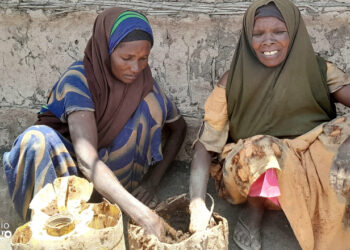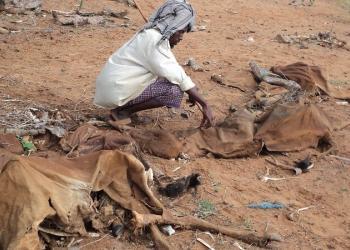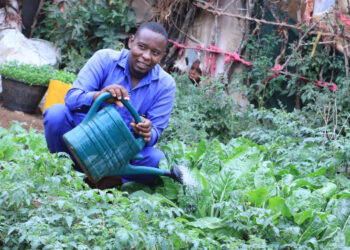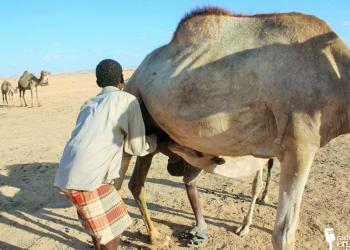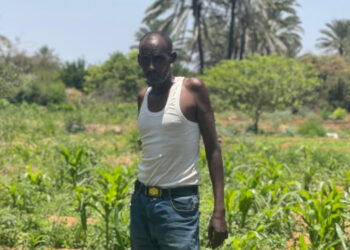(ERGO) – Thousands of farm workers in villages in Afgoye district in Lower Shabelle are out of work because agricultural activities have ceased following the drying up the river Shabelle towards the end of last month.
The chairperson of the farmers’ cooperative society in Lower Shabelle, Hassan Malaaq Hussein, told Radio Ergo that an assessment committee sent to the fields found a total of 27,000 farm workers, mostly women, in 183 villages around the river had lost their jobs.
“They were doing manual jobs such as collecting fruit and vegetables, digging, planting, packing and loading the crops after harvest,” he said.
There were no other sources able to corroborate the estimated numbers of those affected.
Fatumo Noor Osman, a widow with 10 children in Adaliyow village, seven km from Afgoye, told Radio Ergo she had not worked for a month.
“When I was working I used to give my children three meals a day. Now I am cooking only once a day,” she said. Fatumo has no other skills to fall back on. She said she was getting some donated food from neighbours. She used to earn around $1.5 a day doing farm labour.
Mohamud Addow Hassan said his three children had been sent home from their primary school in Balballey village. “I used to work and meet the needs and the education of my children, but now things have changed,” he said
Most of these families earn a hand to mouth existence and even in good times do not manage to save to cover themselves for such times of crisis.
Habibo Mohamed Noor told Radio Ergo she was feeding her eight children by borrowing from shops in Afgoye town, four km from her village Dhajalaq. “I have no other option to manage our lives, I will repay the loans if I go back to my work and things change,” she said. Like many, her hopes rest on the Gu’ rains that have started in parts of Somalia providing enough rainfall to revive local farming.


